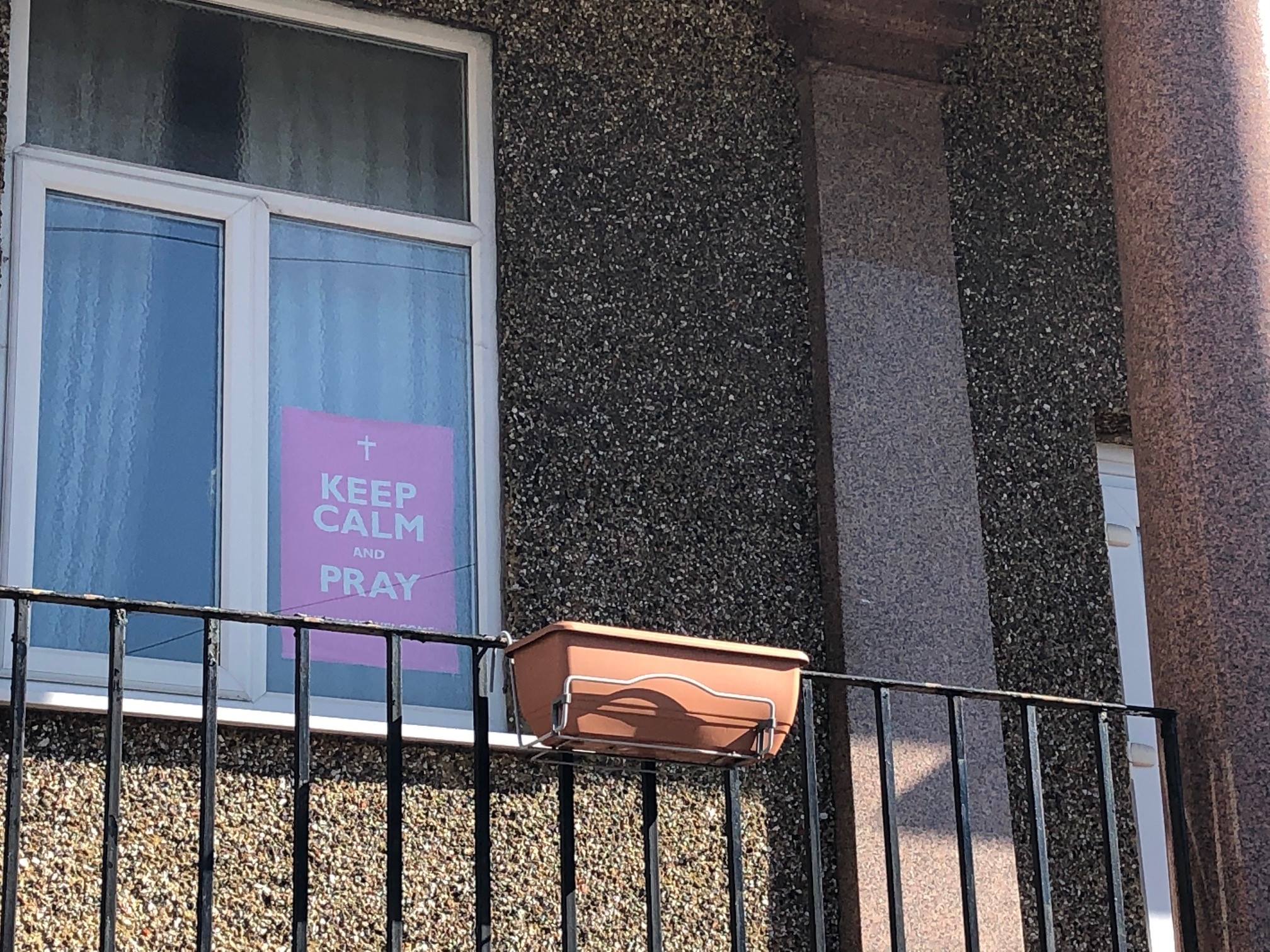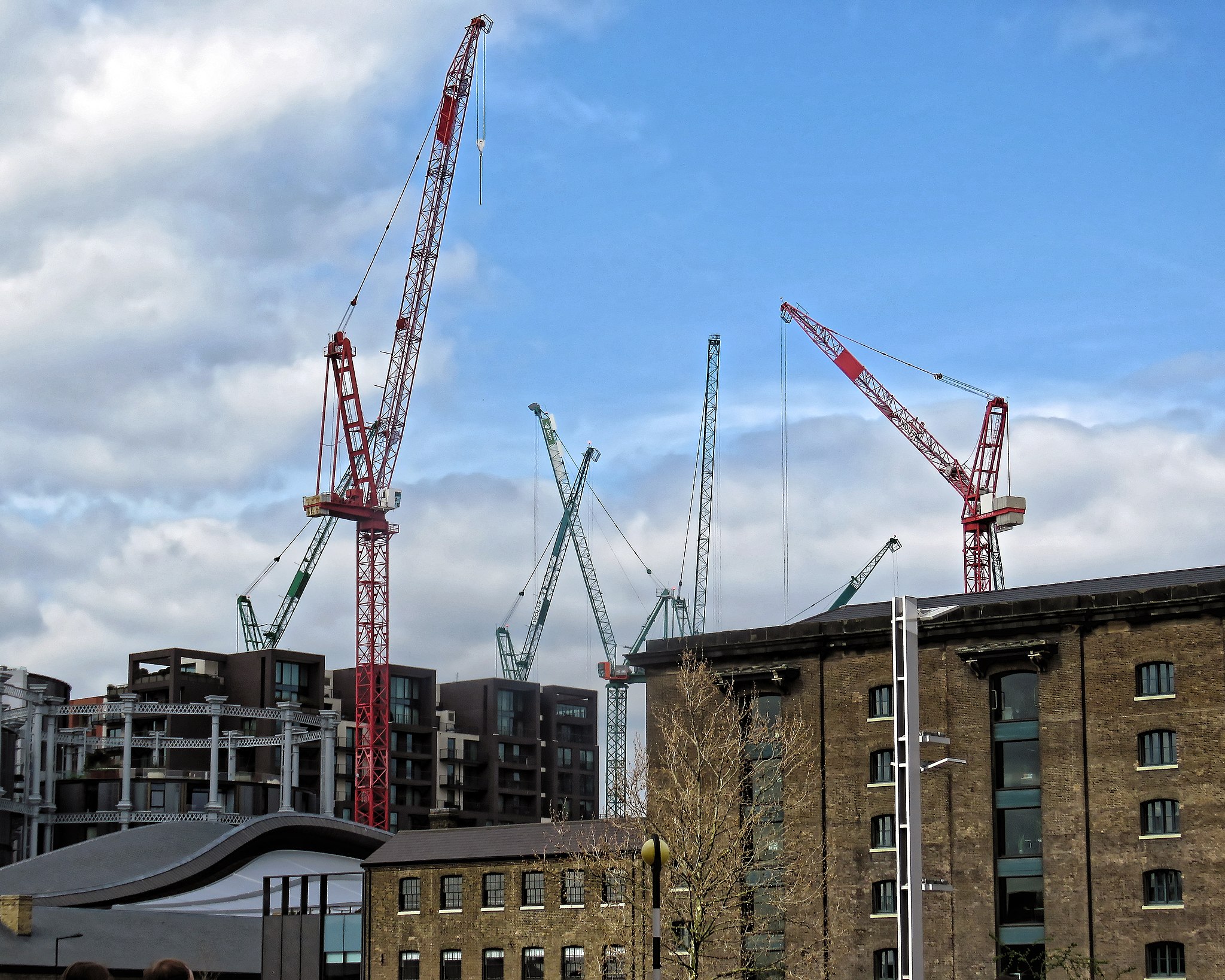We visit the South Croydon Conservative Club and chat about our recent trips away and what it is like travelling during the Covid restrictions.
Category: Covid
Podcast Episode 40 – Scotland Special with guest Alasdair Stewart
We are joined by Alasdair Stewart, the former Chairman of the Croydon Conservative Federation, for a discussion of Scottish politics. We discuss the SNP Government’s response to Covid, the Highers Results scandal, minimum drinks pricing and the new Scottish Hate Crime Bill. We then consider the new Scottish Tory leader, the demise of the Labour Party and the prospects for the 2021 Holyrood Elections and a potential IndyRef2.
Also see our article on the Scottish Libertarian Party https://croydonconstitutionalists.uk/interview-with-tam-laird-leader-of-the-scottish-libertarian-party/


COVID-19: ‘I Fear We’ll See UK Government Start to Lock Down Various Places Again’ – Sputnik Radio Interview
Scientists at UCL and the London School of Hygiene and Tropical Medicine examined the possible implications of schools reopening in the UK coupled with broader reopening of society, such returning to workplaces and increased socialising within the community. Sputnik spoke to Michael Swadling from the Croydon Constitutionalists, about this.
“I feel the real reason for that though is it’s the scaremongering. This is coming from, of course public health authorities; and universities; and people who are in the business of worrying about major public health issues will say that something could happen. Almost anything could happen”
“What I really think we’re seeing here, is an industry that’s now sprung up around causing panic and planning for a future with COVID; and with this disease and other diseases and of course, the last thing they want is for us to get back to normal because that kind of ends their reasons for being”
“People aren’t going to hospital for cancer screening, people aren’t going to hospitals for a whole range of issues and of course, as unemployment rise, we know that always comes with a debt count. It’s not just about managing this one thing, what we need is a government actually governs and manages a whole range of things at once, not just looking at COVID but looking at the whole health and just getting this country back to normal whilst isolating the most at risk group”
“Rather than us looking for the silver bullet, we’ve got to look at how we live our lives with this….just get back to normal. Get us back, living with this but living and enjoying our lives, getting the economy going; rather than having to live in fear of something that actually isn’t going to affect most of us and is destroying our economy to boot”
Locked Down and Locked out!

Opinion Piece by Maureen Martin of the Christian Parties Alliance.
Here we are week 10 of the UK Covid 19, lock-down! We find ourselves as a nation being restructured even as I type. Looking back we can see that social distancing was and is necessary to contain the spread of the virus. It is also clear the Government was too slow in introducing the necessary measures. We have had more deaths per million population than most other countries. Provided we’re sensible though we can now begin to get back to normal.
“Singapore never had a lock down but did a drastic trace and test policy from the start isolating anyone with the virus and anyone they had contact with. This definitely worked best for sustaining the economy and reducing cases and deaths and really also for maintaining civil liberties”
Looking around us:-
Sweden instituted a more blended strategy: instead of drastically closing all businesses except essential services, most businesses stayed open with social distancing measures in place. The most vulnerable over 70’s and those with underlying conditions protected. As a result, the majority of the population developed herd immunity, they still have a vibrant economy and seem to have survived not much worse than other countries.
Brazil has taken the view it is all a hoax and carried on as normal but they are now the only country with cases and deaths rising. They are very clearly on the wrong path and will have to change tack soon, the sooner the better.
Singapore never had a lock down but did a drastic trace and test policy from the start isolating anyone with the virus and anyone they had contact with. This definitely worked best for sustaining the economy and reducing cases and deaths and really also for maintaining civil liberties unless you happened to be one who either got the virus or had contact with such.
Lessons are being learnt.
- Government is able to quickly impose quite drastic laws when there is a danger of a pandemic. It seems this one almost certainly came from Wuhan in China. What we don’t know is whether it was some tragic accident or whether it was actually created deliberately for some reason such as to create the need for totalitarianism and one world Government. At the very least we need to be alert to the possibility.
- Certain groups such as BPAS have been opportunistic, using the pandemic as an excuse to introduce DIY abortions which they are lobbying to make a permanent fixture in UK law. Abortion centres were always going to be in a challenging position. Are they an essential service? We would say most certainly not. Faced with just being closed down they fought back and demanded abortion pills be allowed to be taken at home. Government said “no” at first but then caved in unprepared for the onslaught. Sad. But this battle raged all over the world during the virus lockdowns
- The push for a one world Government and probably with it a one world religion is now bound to continue in earnest with interestingly people like Tony Blair and Gordon Brown at the forefront of trying to set it up. It is very dangerous for civil liberties.
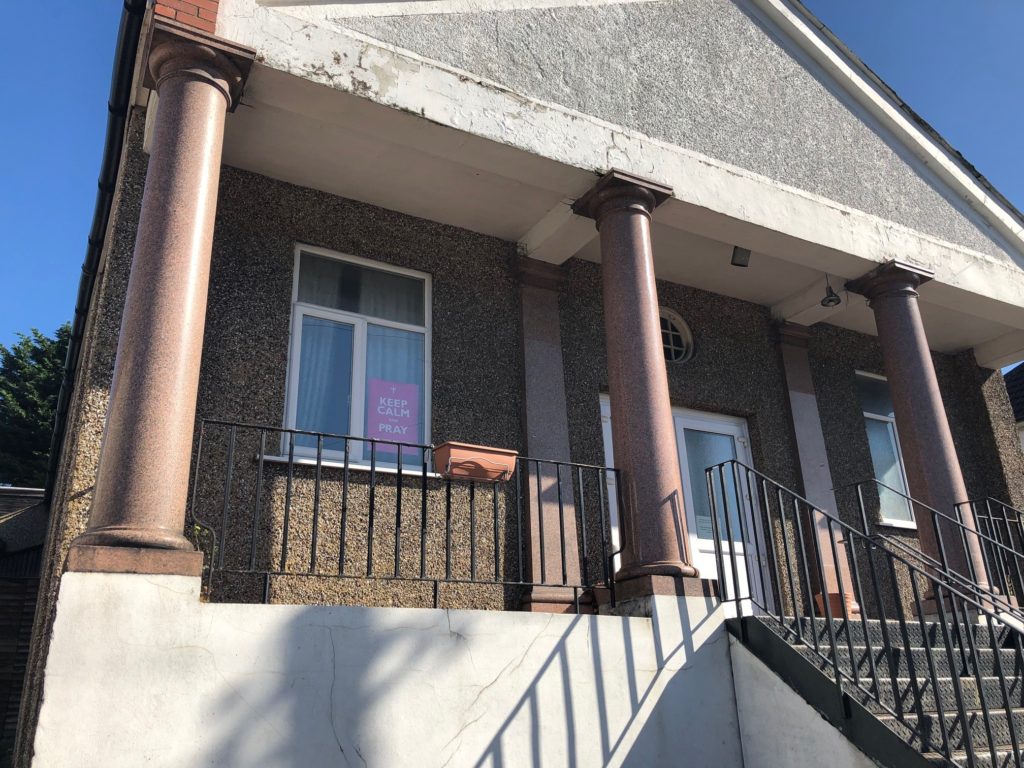
“Individual States in the USA have made regional decisions on the matter. Of course, it is of no surprise that the more liberal states have taken a very harsh line on church activity and even arrested Pastors for supposedly violating state orders”
What about the place of churches?
At the start of this pandemic most churches seemed to willingly give in to being closed down but was it necessary? The application of the Governments’ interpretation of essential activities lacks a holistic approach. I can go along with supermarkets and banks being essential services. This is taking care of our physical and financial needs, but what about our spiritual needs, especially at a potentially very distressing time such as this? If ever there was a necessity for individuals to stay connected to their faith, I think this would most definitely qualify as one of those occasions. Australia took a different approach and deemed houses of worship as essential activities, so churches were able to stay open applying social distancing. Individual States in the USA have made regional decisions on the matter. Of course, it is of no surprise that the more liberal states have taken a very harsh line on church activity and even arrested Pastors for supposedly violating state orders. Whilst States such as Texas have permitted church activity but with some restrictions.
Now it’s time to move on. We believe the process of moving on should have started much earlier. The CPA issued a press release on the 23rd April outlining a sensible strategy for the UK to reopen for business:
As the Coronavirus pandemic calms down in many areas and evidence comes to light the virus is most likely transmitted through the nose CPA calls for immediate action as follows: –
1. Compulsory wearing of masks in all areas where people come into contact with other members of the public like shops and shopping centres and places of work.
2. All shops allowed to re-open but applying social distancing rules.
3. All churches and other religious buildings allowed to re-open applying social distancing rules and reducing the maximum attendance to one third of the normal building capacity.
4. All offices allowed to re-open with everyone working from home where possible and office attendance to apply social distancing and no more than one third of normal capacity allowed inside office buildings.
5. Normal road travel allowed with care to be taken at petrol stations.
6. Social distancing to be applied on all public transport with capacity no more than one third of normal capacity on all buses and trains and flights.
This was only ever meant to be a first step with the next step being a test and tracing regime to be put in place so we can get back to normal. Even now though in retrospect this would have been a good move then for the economy on 23rd April and is unlikely to have altered the downward trend of cases provided people stay alert.
“you can have an abortion but not a baptism, buy a car, but not a votive candle, go to the supermarket, but not a sanctuary, get a divorce, but not get married and break the law, but not receive absolution. It is time to re-open churches”
The government’s recent review of the situation is very puzzling to say the least; The diocese of Shrewsbury in a recent tweet put it in a nutshell – you can have an abortion but not a baptism, buy a car, but not a votive candle, go to the supermarket, but not a sanctuary, get a divorce, but not get married and break the law, but not receive absolution. It is time to re-open churches.
We can however through all this welcome the fact that families have spent more time together. We can welcome the fact that many businesses and Government institutions have been forced to adopt a home working model which will more than likely continue. Social media and video conferencing has come into its own, Zoom has become a household name overnight! The commercial properties market will have to become more creative as less commercial space will be required. High streets, already under pressure will look very different with much more residential space. The NHS has shown great resilience, the fallen heroes of which will not be forgotten. It will no doubt learn lessons from the stress it has been under. My greatest hope though is that our nation will return to its spiritual roots, we are a Christian nation and not forget that prayer has made all the difference in this global crisis much of it done on zoom. Long may the prayer continue! The church also is becoming a changed environment for the better.
For further information read our interview with Maureen, contact the CPA at [email protected] or follow them on Twitter or Facebook.
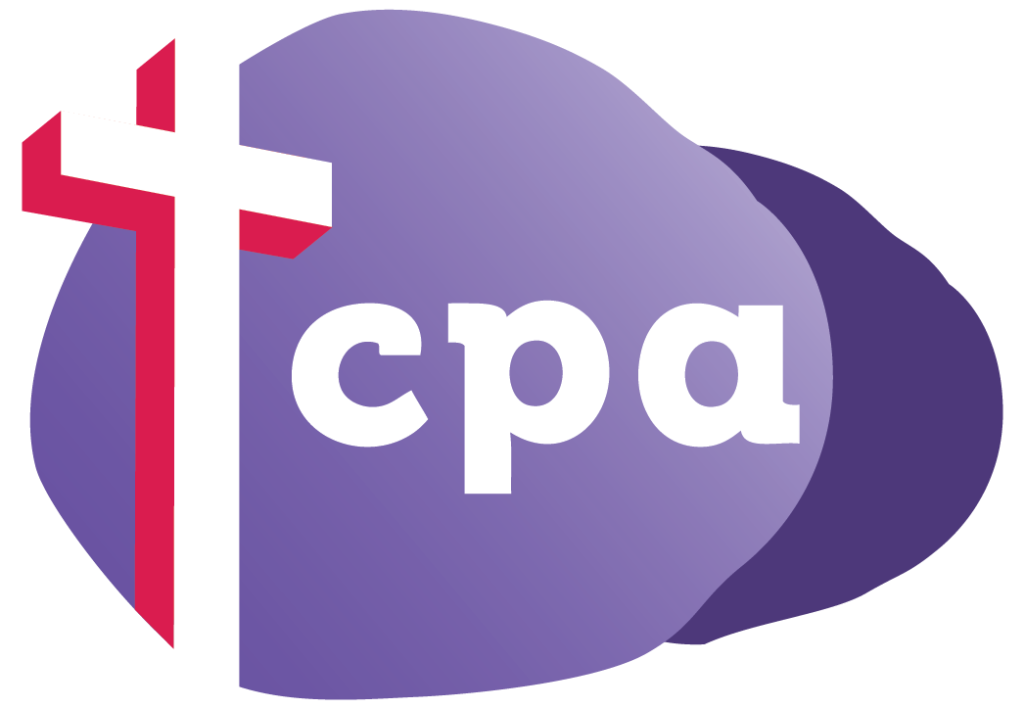
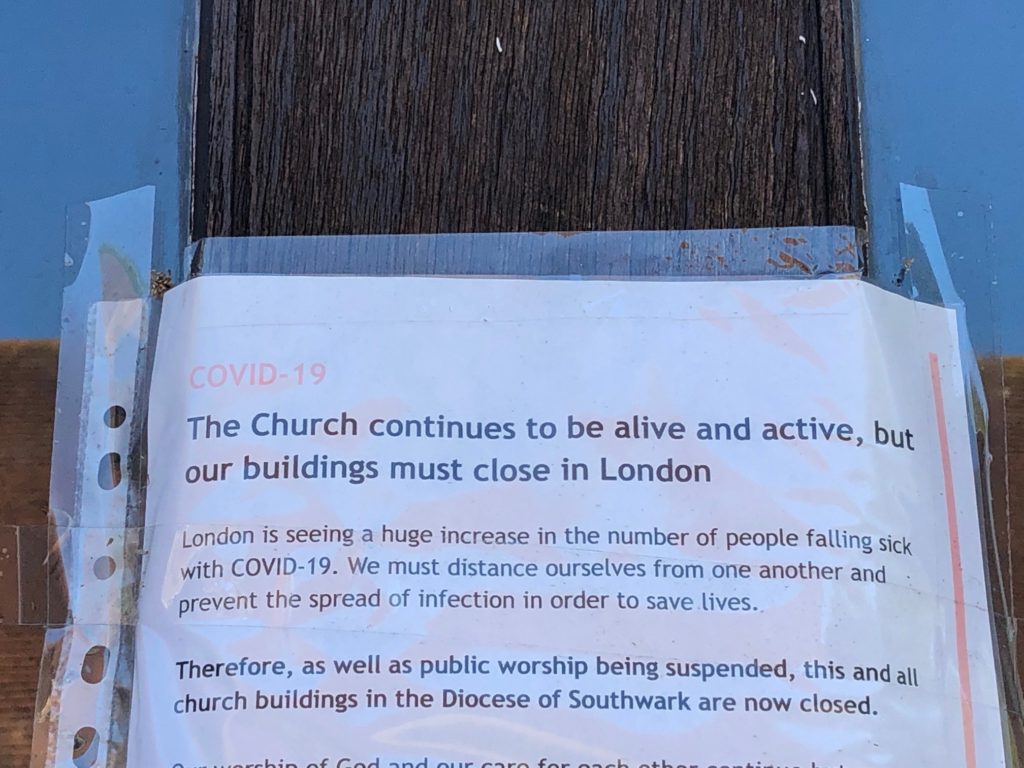
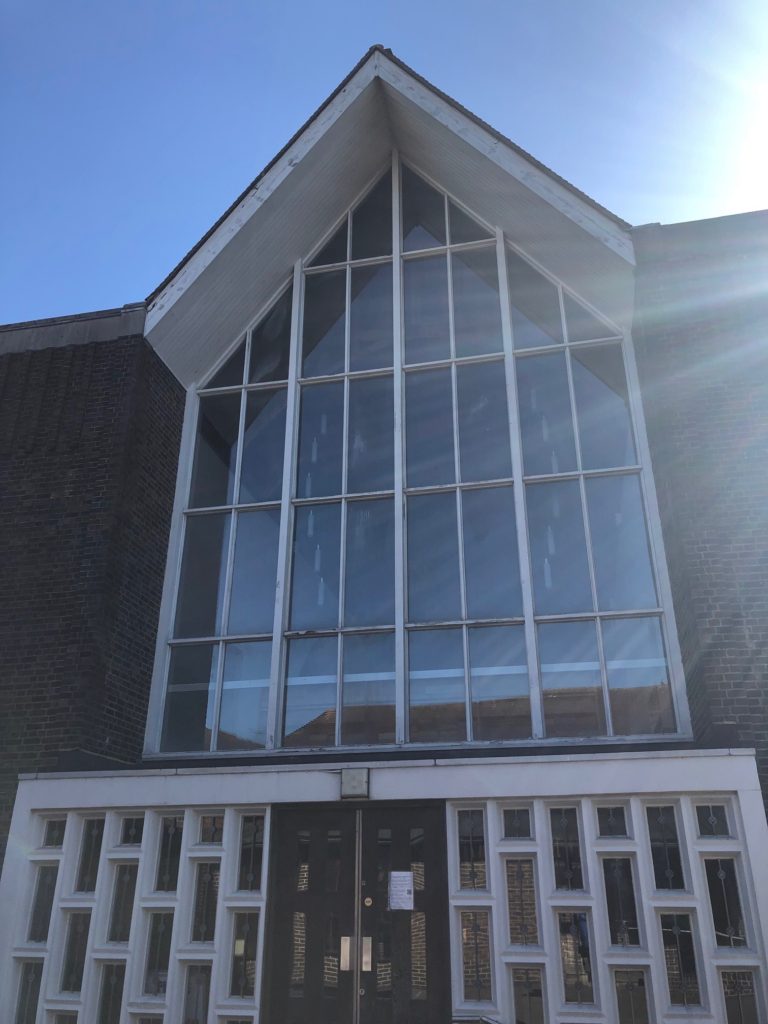
Long term implications of UK Coronavirus lockdown “disastrous.” – Sputnik Radio Interview
Mike Swadling was interviewed on Sputnik Radio about the Coronavirus lockdown.
Teachers Unions and local councils are putting pressure on the British Government to amend their decision to allow certain schools to re-open in June, amid the ongoing Coronavirus Pandemic. Questions have been asked about whether social distancing could realistically be enforced in areas such as classrooms and playgrounds, and if enough personal protective equipment for teaching staff would be provided.
British Government Has Done ‘Tremendous Job’ in Meeting Unprecedented Demands – Sputnik Radio Interview
Mike Swadling was interview by Sputnik Radio about Government’s plans to procure more personal protective equipment for the NHS, the overall handling of the pandemic, and how the economy will recover from the impact of Covid-19?
“I think the Government has done a tremendous job in meeting our unprecedented amount of demands, and it does appear that some more manufacturing could be done in the UK, but we haven’t yet hit a crisis when frankly it wouldn’t have been unreasonable if we had.”
“the comments about there being no risk of a second peak worry me immensely; to my understanding, there is always a risk of a second peak, that needs to be measured, and this came out the same day that Nadine Dorries put out a tweet saying that we can’t end the lockdown until we find a vaccine, but what happens if we never find a vaccine?”
“the best way to bring in more tax revenue is to lower tax rates if you raise tax rates; you see investment dry up, the most capable people will leave the country, and you remove incentives for people to work harder, so it’s absolutely critical that we lower tax rates to collect more tax revenue”
Audio:
COVID-RECOVERY – The Potential For Human Liberty

Opinion Piece by Josh L. Ascough
Nearly a month into the COVID-19 lockdown, and what we saw as normal life seems a distant memory.
It can feel like a lifetime has gone by since we all could go to the pub for a cold beer (or in my case, gin) after a long day. It can bring a great level of reflection on just how important little things were to us enjoying our own, individual lives; things that would bring value to us no matter how big or small we perceived them, whether they be financial, emotional, mental or physical.
Going for a picnic, visiting family and friends to share stories and good memories, working at a job that brought food to the table, all of these and more can feel alien to us now; as the old saying goes, “you don’t know what you’ve got until it’s gone”.
“we as a country have to have the conversation, and now is a good time; nay, an important time to have it. If we’re to return to our liberties, better protect them and enhance them, we need to have the conversation now”
But in order to get these back, and make our lives better, we need to take a moment to now consider not when we will recover, but how we will recover, and how we will not simply bring things back to the old system but make them better. Not just so we are better prepared for another pandemic, but so we can also improve upon our own, subjective standard of value; we as a country have to have the conversation, and now is a good time; nay, an important time to have it. If we’re to return to our liberties, better protect them and enhance them, we need to have the conversation now.
We’re supposedly coming close to the peak period of the COVID-19 pandemic, after said point, we will (hopefully for our economy and social values) be working towards lowering the restrictions in place from the lockdown in an attempt to bring society back to a state of normality.
But it shouldn’t, and cannot be seen as a simple task of simply, flipping a switch; the economy isn’t something which can simply be halted and allowed to resume without serious ramifications, and harm to peoples’ living standards, values, and their ability to satisfy their needs.
It is the same for the social aspect of human existence, it isn’t something that can simply be shut down and allowed to reopen as if nothing happened.
So after saying this, how do we return to normal life?
- How do we better protect our freedoms?
- How do we further acknowledge what our freedoms consist of?
- How do we restrict the power of the state when it can shut society down at a whim?
These are all questions we cannot rely on the government to answer for us, we have to sit down as individuals and find the answers within ourselves.
As the late Margaret Thatcher once said:
“Freedom is the birth right of every citizen”.
I’d argue it’s about time we put that statement into practise for the long term benefit; not the quick fix, short term we are so used to practising simply because “it’s easy”.
So what are my answers to these questions? I will answer these questions after giving a brief note:
These are not “end game” solutions that lift us into utopia; no such place exists nor could it ever exist. No central end game plan can bring about the utopia ideal of, how Adam Smith described, The Man of System; the man who believes he can plan a society from a central point of power, and believes himself to know what is best for everyone around him. These are intended as solutions to better lift the burdens on the people placed there by the government. To better embrace and protect each individual’s freedoms. To call out the fallacy of the faux-rights many claim demand for, such as the “right” to not be offended, or the artificial “group rights” of (insert group type here;) each human being has individual rights, we are all human beings, so we all have the same rights; whether each human beings’ rights are acknowledged by the state, is another topic for another time.
Now that the fine print is out of the way, let us delve into the answers. I will give you my perspective, as an Austrian Economic writer, and as a true, real Liberal.
In order to better protect our rights and freedoms, we first need to understand and acknowledge what they are; whether the state wishes to acknowledge them or not, you and I must, so we can better fight for them.
We as human beings hold certain inalienable rights and freedoms; the right and freedom to live, the right and freedom to speak, the right and freedom to choose, the right and freedom to think, and the right and freedom to our property. All of these are the foundation of a truly Liberal society.
“My right to life does not mean I can force a doctor to operate on me, as his labour is his property”
My right to life does not mean I can force a doctor to operate on me, as his labour is his property; he must be compensated for the use of his property. Freedom to live means quite simply, I cannot kill another man. I may value my child’s life over that of a stranger’s life, but that does not mean I get to decide who is deserving of life and who is not; each individual’s life and body are their most fundamental forms of private property; you don’t get to decide whether I am deserving of life or not, nor do I get to make that choice for you.
My right to speech means exactly that, I get to speak; whether you or the government likes what I have to say or not, whether it is uncomfortable or not, whether it is good or evil, whether it is offensive or not; all speech matters. Freedom of speech not only ensures that each individual can speak from their mind and heart, but when it comes to combating ideas that seem dangerous, it is the best weapon; how can you or I know the substance of a man’s ideas, if his ideas are forbidden from being heard? If evil or dangerous ideas are forced underground and the speech that encompasses these ideas is censored, how can you know how many people support the ideas when they are covered by a veil of sensitivity? This does not mean there are no consequences for my speech, there are social consequences: for example, the government has no authority to force legal action against a man who calls trans women “men”, but that doesn’t mean the trans woman has no right to talk back, criticise, challenge, mock, or insult. Is the trans woman an individual human being? Yes? Then the trans woman has a right to speech too! The individual in question has a right to choose whether to associate with that person after their use of language or not; which brings us to our next right, choice.
My right to choose does not mean I get to choose whether you live or die, or that I get to choose how you must live your life; rights do not contradict themselves. By doing such an act, I would be infringing on your right to life and your right to choose; remember, each individual has the same individual rights. Freedom of choice ensures that each man’s consent is not only necessary, but vital to him being able to run his life with what ensures he can best satisfy his needs, values and identity. I as an individual get to choose what actions are best for my life, what healthcare coverage I wish to engage with, who I desire to be friends with, who I allow access to my property, how to best provide for myself and my family, whether I allow someone to be intimate with me and my body or not, who I wish to give my money to if anyone etc. As stated above, this does not mean I face no consequences for my choices. As an individual, I must accept that all choices add profits and losses to my person, and it is up to me which risks I am willing to take and which profits are worth the risks; whether they be long term or short term. I made the choice to start smoking when I was nineteen, I knew the tobacco companies were not responsible for any damage dealt to my lungs; they did not force the cigarette into my mouth, I made a conscious decision and accept any consequence that comes to me due to my actions, I’m a free individual, it is my body, my property. Do I regret my choice? No. Do some smokers regret it? Yes. Does me not regretting it mean I get to tell others they’re not allowed to give up smoking? Absolutely not!
My right to think is heavily linked to speech, however it does have separate elements. My right to think ensures I can believe what I choose to believe, and no individual or state can force me to stop. I can believe in whatever religion I want or whatever philosophy I want. I have the right to think a certain way about another individual, religion, culture or society, but as stated before, I cannot force others to believe or think the same way through violence enacted by myself or on my behalf by the state. I am an Atheist, but though I do not think or believe any deity exists, it doesn’t mean I can force churches to close, stop individuals from reading religious text, make others become Atheists through the threat of a steel boot; I can attempt to convince through my right to speech, but if they make the choice to ignore my arguments, I do not then garner the authority nor does the state, to then put a gun to their head (figuratively or not) and decree “you will think x or else”.
My right to my property, is slightly different to the previously mentioned rights, though it is none the less important to a truly Liberal society. Each individual has a right to property to which he is in ownership of and holds command over. The farmer is in ownership of his cattle; they are his private property, it is not owned by society, nor does he owe anything to society; he cannot be told how to use his property; if he is an economizing man, he will make the choices which best serve his needs and priorities the needs most important to his subjective values and situation. Every individual looks to better serve his needs in relation to how much he values the goods necessary to do so, and will exchange his commodities for goods which hold better use value to him. The same is true for the consumer as well as the producer. The consumer has a right to his private property in the form of money, and cannot be coerced into spending it in ways he does not deem valuable to him or that would risk him not being able to serve the needs he perceives as more valuable. The producer has a right to the capital he has command over, and cannot be forced to use his property in such a way that would risk his ability to provide for his needs he classifies as most valuable to him. I cannot force you to give me your car, nor can you force me to give you my money. If I or you wish to exchange property, there must be a mutually beneficial exchange, and only those involved within the exchange are in a position to set the standards for said action; the good you wish to exchange must have more use value to me than the exchange value of my good, and your commodity must have a higher exchange value to you than its use value. The fruit of your labour is your property, and you have a right to it.
All of these rights and freedoms are the very essence of a Liberal society, but they are completely undermined by not just the COVID-19 lockdown, but a number of policies, institutions, and regulations our government places on human existence.
I will go over these in brief and how we can better these for the full acknowledgement of all of our rights and freedoms, but overall, the issue can be summed up in two statements, which I ask the reader to ponder over.
- Government and society positions itself on the notion of ‘Assumed Consent’.
- The Government does not believe in ‘ Inalienable Rights’, but rather ‘Loaned Rights’.
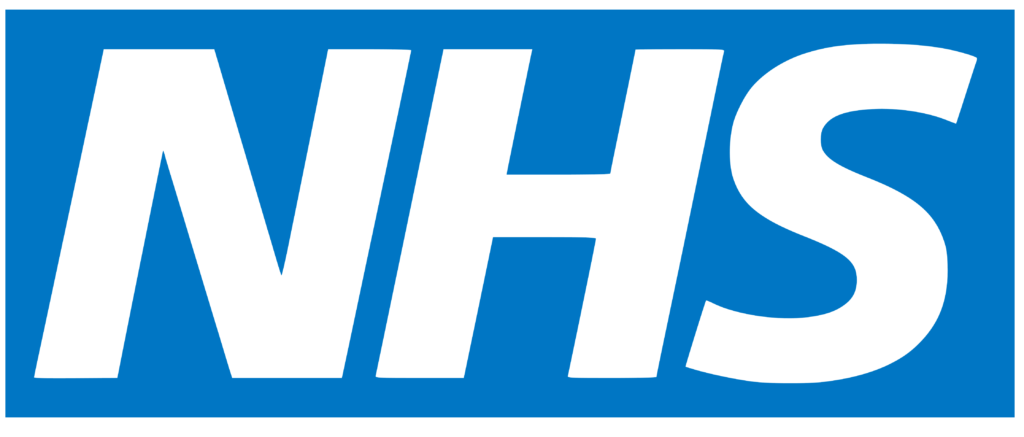
I think it best to cover the topic most find difficult first; our healthcare system.
The fact that many would view the following statement as heresy, should be a clear indicator that many have been overcome by nostalgia for days which never existed, idealism, self-deceit, and a lack of either will, or desire for change; the statement is as follows:
The NHS Is A Government Run Centralised Monopoly.
Now this is not an attack on the doctors and nurses, they work extremely hard within a system poorly structured; we should consider change not just for the better satisfaction of patients, but for the hard working doctors and nurses to be able to better operate. Patients, nurses and doctors deserve much better.
There are two primary reasons for this statement, one of which is based in economics, the other is in direct opposition to our right to choose; these are:
- The Tragedy of the Commons.
- Centralised Planning of Healthcare.
The Tragedy of the Commons, is when there is no distinction between one man’s property and another man’s property; where a product, or service, is owned by everyone. With this, people face zero opportunity cost and tend to take more than what they need, causing supply to not be able to meet with demand, as there is no pricing system in place to coordinate causes, allocate resources or incentivise choices; this in turn creates rationing, shortages, long waiting periods before new supplies can become available, and additionally causes quality to drop dramatically with the costs rising exponentially.
On the subject of a Centralised Government Monopoly, The primary issue with this format, is that the central organised body, the government, due to having no income of its own; its income after all comes in the form of forcing money from citizens, whether they be consumers or producers by the means of taxes, and so faces no risk to itself should it make choices, which may be well intended, but that do harm. The other issue with this system, is that, as indicated, the NHS is a government run monopoly. Due to its legal monopoly status; not a monopoly status based on higher competitive abilities, such as more attractive wages, higher quality, lower prices, but due to an essentially limitless budget and a monopoly status derived from force and power of authority, where even in the case where fewer need or want it, it continues to have money forcefully taken from people, it creates a lack of incentive for efficiency, a lack of opportunity cost, and a lack of risk and loss on the part of the provider. Let us imagine for a moment, there was a company, let’s say a company which makes lifts; this company, no matter how large or small its consumer base is, no matter how many people want its services or not, has access to a limitless budget which it forces from people’s pockets; how much waste would be created from this company? What standard of quality do people believe this company would produce, considering it faces zero loss? Most people would rightfully say, it would create an unprecedented amount of waste, funnelling much towards its inputs but creating very few outputs, and would rightfully say that the standard of quality, would be so low, that under normal circumstances, where loss and risk are possible, this company would’ve gone bankrupt and possibly even sued.
“the government assumes a right to take a man’s property in order to fund a system, which he may not want to use, or he may not value. Neither you nor the government has a right to any man’s property simply because he lives within the same society”
This format directly contradicts every individual’s freedom of choice, right to his private property, and is a clear example of “assumed consent”. For simply being a citizen, the government assumes a right to take a man’s property in order to fund a system, which he may not want to use, or he may not value. Neither you nor the government has a right to any man’s property simply because he lives within the same society; you cannot assume consent without restricting the right to choice, or the right to the private property a man has ownership and command over.
I would consider the best option for recognising our right to our private property, right to choose, and create less assumed consent, would be to reform our healthcare system. This can be done by privatising hospitals, expanding which industries can enter the healthcare market, and altering the NHS into simply, a tax funded health insurance program, where individuals are not assumed to be consenting of payment, but is an opt-in system for those who cannot afford market rates, which holds no legal monopoly by increasing taxes if consumers do not choose it as an option, but operates under competition; both public and private can benefit from competition.
Additional measures to take to better protect property rights, freedom of choice and reduce assumed consent, would be to reform the tax system.
Through the acts of direct taxes such as Income tax, the government not only harms the living standards of those already on low income, but through direct tax does not recognise their right to private property and the fruits of their labour. The government not only assumes consent to plunder the citizens, but the direct tax is the state’s position of loaning property rights to those who already (if rights were taken seriously) hold ownership of the goods he possesses command over; his money!
In order to abandon this notion of loaned rights, it would suit us to reform the tax system into one of indirect tax. An indirect tax is not along the lines of the income tax, but requires the individual to consent to perform certain actions first; the sales tax is an example of such a tax: it is not taken from the individual regardless of actions or choices he takes, but is based on the individual making the conscious, free choice to a consenting transaction.
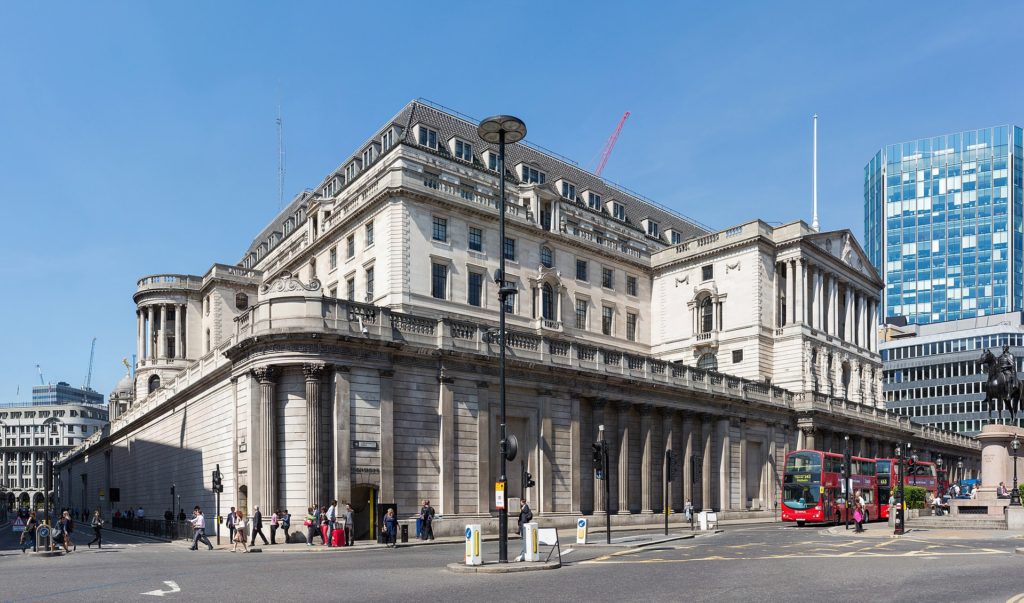
Another area, which I would consider the most important in order for the legitimate protection not just of rights, but of value and living standards, is the subject of the central bank.
“Money is not a creation of government; a money occurs when a certain economic good has acquired a certain degree of use value as well as exchange value; providing it with an intrinsic value for trading”
Money is not a creation of government; a money occurs when a certain economic good has acquired a certain degree of use value as well as exchange value; providing it with an intrinsic value for trading. This has allowed over the centuries for the development and strengthening of the consumer/producer relationship, however, the creation of the central bank has not only destroyed this relationship, but shifted it to a relationship between government and corporations.
Through the creation of the central bank, the government has bestowed upon itself the legal monopoly not just that of money production, but the power to define a money and through the elimination of the gold standard, the power to print limitless quantities; forever weakening our lives and values.
If we truly want to end Cronyism, we need to destroy The Central Bank.
Our rights continue down the route of being disregarded through the enactment of “hate speech” laws; fining people and arresting people for what they say depending on whether they address certain words towards “protected groups”.
“The government has no right to determine what hateful speech is and what is not…. there is no such thing as group rights, each individual has individual rights, so everybody has the same rights; including the right to speak”
The government has no right to determine what hateful speech is and what is not; nor should it be positioning itself into deciding which “groups” are “protected” groups. As stated before, there is no such thing as group rights, each individual has individual rights, so everybody has the same rights; including the right to speak. This also fails to take into account context, I think many of us remember the Count Dankula case. A man who was arrested after making an edgy joke, by portraying his pug as a Nazi, only to have the courts declare “we decide the context”; the irony being the only people in history who would’ve been offended to the point of arrest over such a joke, would’ve been the Nazis. In addition, this type of pandering can be seen as what I would call, condescending compassion: group x is so fragile and unable to handle confrontation, we must protect them from slogans and terminologies which may upset them. It’s just another one of the ironic traits of the self-righteous planners of social systems, when you really break down the position, turning round to say, a black person and saying “you’re a part of group A, so you will find x offensive, so you must be protected because you cannot handle yourself” sounds very condescending. I am by no means justifying racist, sexist or any of the “ist” forms of language, but you don’t combat bad ideas by burying them under the carpet. This type of policing of language, due to the governments nature, always leads to context being ignored through blanket, one size fits all policies, and a method of silencing opposition without forming any argument; it shouldn’t be hard to use freedom of speech to explain why Nazism is bad; banning its language just displays a lack of ability or desire to make an argument, which, if those who decree hate speech have arguments that are so bad they have to censor the words of opponents, they have failed to do the simple task of thinking.
In order to be able to think or speak, you have to risk being offensive.
I don’t care what you are, I care who you are.
In order to protect the right to speech as well as all of our inalienable rights, we need to form a codified, British constitution, detailing the individual rights of all who live within the nation.
Overall, not just the government, but we as individuals need to recognise, the government has only one role through its power of legal monopoly over force; to protect the rights of all.
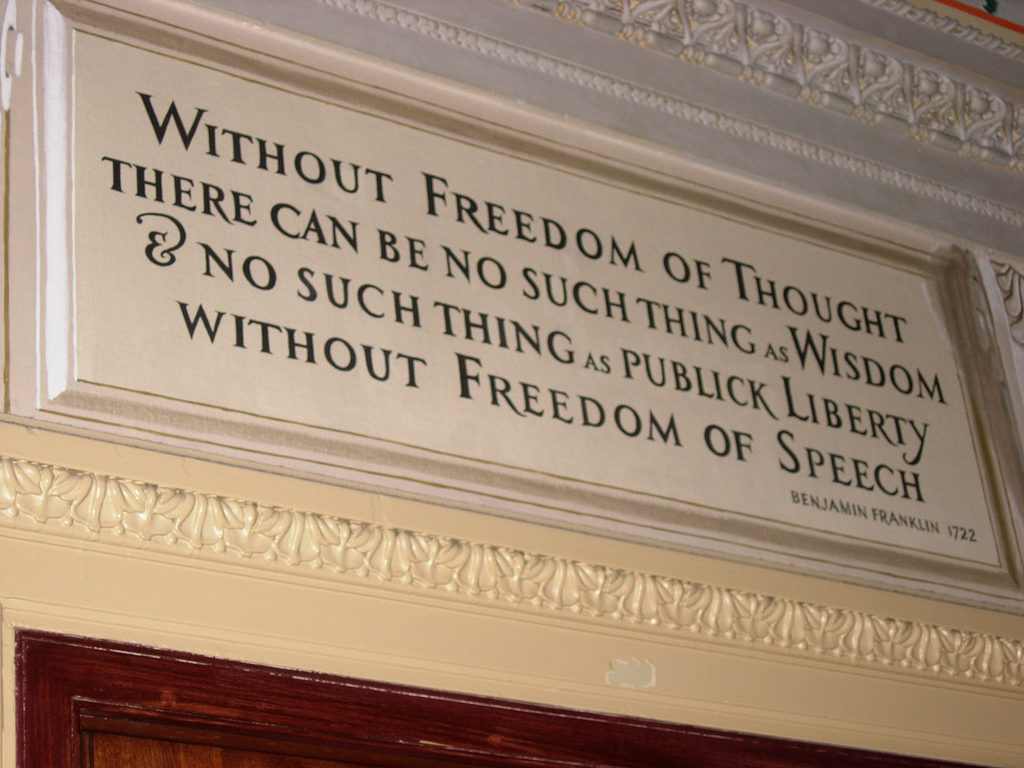
Josh L. Ascough is on Instagram at https://www.instagram.com/j.l.ascough/
How do we recover? – Some ideas for the post Covid Britain.
Image © Acabashi; Creative Commons CC-BY-SA 4.0; Source: Wikimedia Commons
Opinion Piece by Michael Swadling
Each day sadly the death toll keeps rising, and on any given day the economic news keeps getting worse. We are in a lockdown with social distancing in place to save lives.
But at some point this will end, we will get back to normal and we must look to recover from the economic slump. My own economics philosophy being somewhat laissez faire means I would like government generally to do as little as possible, however that is neither realistically what will happen, nor what is likely to be acceptable in our democracy today. Rather than focus solely on what I would want, I intend to also look at some policies that might realistically be used to aid the recovery.
The new baseline
The lockdown will have already changed some things that will never change back. The longer this goes the greater and more ingrained these changes will become. Whole industries are successfully working from home. More people are getting food and other shopping delivered. Many of us are becoming heavy users of streaming media services. We are getting out the habit of commuting or even just going for a drive.
With the loss of life, fear will drive many people to reasonably want to avoid unnecessary contact even when the lockdown is lifted. It is reasonable to assume the lockdown will be lifted in stages, and quite likely it might be reintroduced if we see a second spike in contagion. Many will find their normal routines disrupted for 6 months or more.
What might these changes mean? Who are the economic winners and losers? Here are some thoughts on how things might have already changed.
Economic winners
- Whether for streaming media or working from home, we have all become super dependent on our broadband. Companies often have duel supply for such a critical service. It is reasonable to assume some households may do the same and that suppliers will start to provide emergency callout services as happens with many utilities today.
- At one end of the broadband connection is the single point failure in many homes of the laptop or home PC. Expect sales of small inexpensive thin client technology to go up as people require some home redundancy and capability for multiple users. Companies have already been moving to ‘the cloud’ for providing services for customers and staff. As it becomes apparent more of the staff are themselves in the cloud rather than the office these services will further take off.
- Without the commute or as much international travel people expect to be ‘always on’. This was already happening as more buses, trains, cars, and airplanes have network connectivity, and WiFi, expect this to intensify, and telecoms companies to benefit.
- Also already happening was the move from the shopping centre to Amazon delivery. This will only accelerate. Many people like shopping and will no doubt rush back once the shops are open again, but will they spend much? Will they make up for the many spending more conveniently online? Amazon, other delivery services and delivery jobs are bound to grow.
- Lots of people are facing and will face real economic hardship from this period. Too few people and businesses have emergency savings to survive even the smallest setback. In time, as people re-find work and as they can, expect more people to save more for a rainy day.
- All high streets will be devastated with lost shops. Pubs and restaurants may initially boom, but then struggle with the debts of the period of lockdown. However in the medium to long term as more people work from home, as people rediscover their local shops, local high streets may do well. A day working from home is greatly brightened by popping to see a friendly face in a local store.
Economic losers
- If your workforce can operate from home why would companies pay for the upkeep of massive city centre offices? Some offices are still needed. There is no substitute for face to face meetings, but these could accommodate say 10-15% of your workforce not the 90-100% they do today.
- The long term trend has been to move spending from products to experiences. People want fewer physical items and more memories. The lockdown has made many realise what really matters in life, and it isn’t things. Between fear of further economic uncertainty, changing habits and economic suffering, consumerism could be on a steep decline.
- Town centre shopping is on the decline. Fewer big shopping centres are being built, people have fewer reasons to visit them. With more people working from home, a move from products to experiences, and economic uncertainty town centre shopping will continue to suffer. In the same way the department store and supermarkets changed the shopping experience in the past, someone will need to reimagine the whole shopping experience to get people out to revive these centres.
- More working from home, more people avoiding the commute. How many will travel abroad or even far from home if they are worried about another shutdown of travel or period of confinement? Travel, be it commuting or further afield is likely to decrease for some time to come.
At first glance more savings and less consumerism might look like positive outcomes, but our economy requires people to spend money to create jobs. More savings means more supply or even an oversupply of money needing a home, and it is likely to be lent badly. Some rebalancing is a good thing but ideally in moderation.
“Net Zero emission targets were economy killers before Covid-19, they won’t help now. People are already changing their habits, with more working from home. Carbon emissions are already falling and are likely to stay lower. We will be in an economic slump, government should avoid making things worse with more punitive changes”
Avoid making things worse
The first step to recovery must be to avoid making things worse. Net Zero emission targets were economy killers before Covid-19, they won’t help now. People are already changing their habits, with more working from home. Carbon emissions are already falling and are likely to stay lower. We will be in an economic slump, government should avoid making things worse with more punitive changes. The other reason to delay implementation of Net Zero targets is whilst people may choose to change their habits, after a few months of lockdown they will resent and likely rebel against being forced to change their habits.
Every year governments like to introduce more regulations and laws. A few of the new laws for 2020 can be found here. Many are good laws, no doubt all done with the best intentions, but stop, hold fire don’t do any more. We have already seen further implementation of IR35 delayed. Scrap it, and scrap any more bright ideas for the next couple of years. Whilst we’re at it many government processes and regulations will have been streamlined or just removed to get vital products to the front line. Keep them streamline, don’t revert, if the new processes are good enough for a pandemic they are good enough at all times. Let businesses have a period of a freer environment, without the dead hand of the bureaucrat crashing down on them.
Enable opportunities don’t force change
Many people will struggle with mental health issues being cooped up. Many will lose a business they have spent many years building, many more will lose their jobs. People are broadly accepting the need to socially distance, although we saw a quick backlash to some initial heavy handedness from the police. People will quickly resent the government trying to force the pace of change.
Many a public health civil servant will see the pub closures as a chance to change habits, many in Treasury will like the tighter control they have on the economy. Many will think command economics work. This needs to be resisted. People and businesses will respond to light touch incentives and likely push back on heavy handedness. I would like government to take next to no action, that may be too much to ask, but government signposting the way rather than forcing change will be the path to recovery.
Reinstate free speech
A huge amount of liberty has been given up during the lockdown. Government needs to prove that our freedoms are not traveling down a one way street from us to them. Health advice will dictate timelines for the returning of many basic rights. But government could do more and do it now. The Public Order Act 1986, The Criminal Justice and Public Order Act 1994 and The Racial and Religious Hatred Act 2006 all impose restrictions on our speech.
Hate speech is wrong, people shouldn’t aim to insult others based on immutable characteristics but likewise government shouldn’t legislate against our most fundamental right to free speech. Repealing these more egregious parts of these and other laws will send a message, freedom matters. That message is important in itself, it’s important for the confidence of the nation, and a nation of clear and limited laws will encourage investment to rebuild our economy.
“Build toll roads, railways, bridges, ports funded by and with profits to the private sector. As a result of private risk taking, better more effective projects are likely to be chosen”
Build, build, build, toll roads
The Conservative victory at the 2019 election had manifesto commitments to significant infrastructure investment. The massive cost of the Covid-19 emergency and the reduced tax base will make further borrowing difficult. But investment can still come and it can come in the form it always should have, from the private sector. Build toll roads, railways, bridges, ports funded by and with profits to the private sector. As a result of private risk taking, better more effective projects are likely to be chosen. If some support is needed cheap borrowing could come from publicly backed bond schemes, which provide a route to encourage and soak up savings. It also provides for a sense of everyone ‘doing their bit’. We get the infrastructure we need and the user of it rightly pays.
Free ports
The government has already announced a consultation on Freeports. The freeports would have different customs rules than the rest of the country, act as innovative hubs, boost trade, and generate employment opportunities in some of our most deprived communities. Global trade is likely to reduce as a result of the pandemic. Anything to increase trade is to be welcomed. Nothing should be allowed to get in the way of delivering on these plans.
Supply chain sourcing, with a UK mix
In the US we already are seeing a reluctance to buy goods marked ‘Made in China’. We have already seen French border guards impound trucks with face masks bound for Britain and India limit medicine exports. Expect economic protectionism to return often directed by consumers rather than governments.
Many companies are now seeing the perils of long supply chains, and our national security is at risk if much needed medical supplies can only be sourced from abroad. Lots of companies will naturally look to move more of their supply chain into the UK. It may be prudent for government to work with suppliers to ensure some key industries source, at least in part, from the UK, or for the government to source from the UK for key items.
Manufacturing closer to home
If supply chains are likely to want to move onshore we need to make manufacturing cheaper. The US saw a massive boom in manufacturing when energy prices dropped as a result of Shale Gas. World energy prices are in steep decline, government should reduce taxes to ensure more of this is passed onto the end user.
The Annual Investment Allowance is used to deduct the cost of plant and machinery equipment. The maximum deduction has already increased from £200,000 to £1,000,000 for 2020. This is great news, but frankly why stop there? Let’s see a real commitment by making a permanent increase of say £10,000,000 to really bring back manufacturing to our shores.
Support the high street
The chancellor had announced a business rate holiday for retail and leisure firms. This will bring relief during this period, rates are a problem but government’s long term options to reduce tax when they have a massive deficit are limited. Reducing duty on alcohol in pubs could actually increase the tax take as it keeps business afloat and pubs act a magnets for their local high street.
With the ease of online deliveries, going shopping needs to be about more than just procuring goods and services, it needs to be an experience. Travel to the US, Canada or Australia, and it’s much more common for bars, restaurants and shops to offer free WiFi. Government through tax breaks, councils through helping to organise, and granting planning permission, can assist high streets and local business districts to provide publicly available free WiFi. Give people a reason to stay, browse and buy, let them stay online and connected.
After the lockdown one practically free solution could be to encourage or better still instruct councils to provide 3 or more hours of free or cheap parking for all local high streets. Stop the relentless drive to stop people driving to the shops, stop punishing people for wanting to park up and use local facilities. Even use tax breaks to encourage private enterprise to set-up car parks. Let people get to the high street so they can support their local community.
“It would be sensible for the government to make the capital spend on creating and possibly warehousing a significantly increased surge capacity in ICU equipment. The equipment won’t be needed immediately, and can be placed on a longer procurement timeline with British businesses thereby securing many jobs”
Heightened health service surge capacity
We are likely to see a long tail to the Covid-19 pandemic. Governments are warning of further peaks in new cases and possible further lockdowns. It is likely in future years we will see calls for social distancing in bad flu seasons. We will also likely see ongoing greater scrutiny of available health care capacity. At the start of the crisis the UK had a low per capita ICU bed capacity. The capacity in normal times matters less than the ability to surge it. It would be sensible for the government to make the capital spend on creating and possibly warehousing a significantly increased surge capacity in ICU equipment. The equipment won’t be needed immediately, and can be placed on a longer procurement timeline with British businesses thereby securing many jobs.
We would also need staff for these facilities. We have seen a nation respond to the great work of the NHS. Let’s encourage something similar to the Territorial Army and help organizations like the St John’s Ambulance expand so we have more medically trained people who are ready to step into or backfill for others staffing these positions.
Tourism and travel
Airlines are on the brink, airports are shutdown, the rail franchises have been effectively nationalised. People will be in the habit of commuting less. People will be worried about overseas travel while Covid-19 still threatens the globe, and people will have discovered how simple and effective video and audio conferences can be.
How can people be encouraged back out? Being at home people will become used to being always on. Get buses, trains, airplanes, bus depots, railways stations, and airports flooded with free WiFi. Make the traveling experience easier make it less of a chore and let people answer emails or stream a movie whilst travelling. Government can again make tax breaks available for this.
As part of returning the rail franchises to private ownership government should look to remove barriers to providing more carriages on the railways. Make the travel experience better, we expect to be crowded for a short commute in rush hour, there is no good reason why a long distance Sunday train ride packs people in like sardines.
As has been said before scope for reduction of taxes will likely be limited. However charging punitive Air Passenger Duty when few people are traveling is counterproductive. Sweeping cuts until the industry is back up and running will likely bring in more tax revenue than it costs.
A quick google of a few major airports in the UK and most offer no smoking facilities once airside. Approximately 15% of people in the UK still smoke. It might be very bad for you, but freedom is the freedom to make bad choices. Given people can be airside for up to 3 hours before a long flight, it is reasonable to offer smoking rooms, enclosed, well ventilated and away from non-smokers. A small change in the law is needed, and government could encourage a set of people put off flying back to our airports.
5G and 4G for that matter
It is unlikely the prospect of Huawei equipment running our 5G network will be greeted with more glee now than it was before the Covid-19 pandemic. This will inevitably slow down the rollout of 5G in the UK, but government can help nudge it forward. More tax breaks, grants, and sped up planning permission will all help. We shouldn’t forget how good 4G is (it’s what most of us use now), and how much of the country has poor coverage. Government can again work with providers to help provide greater coverage to rural and even some suburban communities. Coverage will enable more people to work productively in their home or local communities, help us in the event of a further shutdown and help build productivity outside of London and the South East.
What’s next
We may have a long way to go, and things will change, but we need to get thinking about the future. Relatively small amounts of government intervention can enable the private sector to grow and embrace the new future. More home working with less commuting and a little help to build local high streets can go a long way. Changes to procurement patterns can with a little help be a great opportunity for domestic manufacturing. Make travel a little easier and encourage people back out. With restrictions on government borrowing let’s get the private sector to develop the infrastructure of tomorrow. And after a period of suppressed freedom, let’s go further than reinstating the rights lost at the start of the pandemic, let’s take dramatic steps to making us a truly free country once again.
COVID Lockdown – The Threat To Human Liberty
Opinion Piece by Josh L. Ascough
For the past couple of weeks, the United Kingdom has been on a lockdown in an attempt to counter the spread of COVID-19.
This has ranged from businesses being forced to close, a government allocated, one exercise per-day outside, hospital appointments not deemed “essential” by the central powers that be, and police issuing fines, using drones to spy on citizens and overall adopting an Orwellian method, all under a catchy dystopian slogan; ‘Stay At Home. Protect The NHS. Save Lives.’
“You can’t grow an economy through the printing of money, plundering money through taxation, decreasing rates or by bailing out industries; growth is production of what people demand; that’s entrepreneurship”
There are also the Keynesian Economic models the government has adopted: Bailing out industries with taxpayer money, setting interest rates lower than the market rate, looking to cover 80% of wages, which, with a country on an economic shutdown, no new revenue will be brought in by plundering wages or businesses not in business, so the only means will be expanding government bonds furthering debt, or, as has been suggested and is the usual method by the central bank; printing more fiat money. These put us at great risk of pushing ourselves into another recession, or worse an inflationary recession; a devalued currency occurring due to printing money without wealth creation (we must remember that money still falls under supply/demand; more within the supply decreases the value), alongside devalued capital which starts, as stated above, with the central bank expanding credit and setting rates low; giving false signals to capital investors, leading them to grasp for resources when there are too few. This lasts until the bank reaches shaky ground and raises the rates, causing the capital to go bust, which ultimately leads to living standards falling. The worst financial enemy of the poor during this pandemic is not “income inequality”, which is a redundant terminology, but a money which can buy less. You can’t grow an economy through the printing of money, plundering money through taxation, decreasing rates or by bailing out industries; growth is production of what people demand; that’s entrepreneurship.
You may be wondering why I started with such emphasis on the economic costs of the lockdown.
While many who are sceptical of the lockdown will claim the economic and social ramifications are separate, they must be seen as one and the same, as the economy is not a car with an engine to be repaired as a separate object from the driver; no expert can “fix” the economy as there is no “it”. the economy is us, it is organic; based on the actions, choices and subjective values each of us holds with them meeting in equilibrium; to lockdown the economy or the social liberties of society we exist within is the same; they are both intruding on choice, claiming which of our values are “essential”, and who’s needs are more “legitimate”.
That is the realm I will focus on: Choice.
I do not deny the seriousness of COVID-19, and I find the emotional arguments (if they can even be called arguments) of “How many deaths is enough?” and “You’re selfish”, to be repulsive ways to simply dehumanise those who wish to be responsible for themselves, without threats from the state and who dare to question whether restricting liberties is the best cause of action to take, or whether there were other options on the table. My position on COVID-19 is the same as my position on climate change: Is it serious? Yes. Is the best solution through government control? No.
“With a central plan for the economy and our civil liberties, the government forgets to recognise that each individual has their own priorities, level of risk management and assessment, and must be free to make the difficult choices themselves by assessing the risks”
People can only flourish when free to find passion, profit, charity and love; through the shaking of a hand and the ability to identify their own risks, gains, values and needs; not through a steel boot. We need to recognise that the economics and the social aren’t things that can be mastered, planned or engineered, and to believe otherwise is the pretence of knowledge.
The crucial risk to our liberties is that it will lead to social engineering, similar to China with its so called “social credit”. We are already seeing signs of this being an easy success for the government, with neighbours snitching on neighbours, when they do not know the reason, risk analysis, or circumstance of the individual.
“It was recently suggested that the government could completely ban all outdoor exercise; again, the shoe doesn’t, and cannot fit all feet. Many people within our nation suffer with depression, and for some, going out for a jog can help”
It was recently suggested that the government could completely ban all outdoor exercise; again, the shoe doesn’t, and cannot fit all feet. Many people within our nation suffer with depression, and for some, going out for a jog can help. Even if a person doesn’t have depression, going out can be good for clearing ones head from stress; so to use the emotional argument so often used against the sceptics of force: how many suicides from stress and depression have to happen before restrictions are seen as at least, not the best cause of action. Everyone should be concerned with our situation for two reasons:
(1) It shows how easy it is for the government to shut down society.
(2) The Income Tax was meant to be “temporary”. So how many of the new restrictions will be “temporary”.
I will finish by quoting the words to a rap song by Emergent Order:
“Let’s unite people from every nation, in peace, exchange and cooperation.”

Josh L. Ascough is on Instagram at https://www.instagram.com/j.l.ascough/
Sputnik Interview – British Public ‘Should Trust Government’ on Coronavirus
The British Government could be set to ramp up its measures to control the spread of the Coronavirus, amid mounting criticism of Prime Minister Boris Johnson’s handling of the situation. Mike Swadling, School Governor and member of the Croydon constitutionalists, reflects on the subject.
+++ As so often is happening at the moment events overtook what was said +++
“There is an importance to keeping these children educated, there is an importance to allow their parents and families to work and schools provide a lot of facilities for children beyond just their education, and the longer we can keep that going; the better”
“I think that it’s important that the British Government tries to get things as back to normal as possible, as quickly as possible and that we aim for that bounce back”
“It’s not like you can’t have a video conference or an audio conference and agree on the way forward, there is nothing that has fundamentally changed about the fact that the UK has left the EU, and frankly the European’s completely inept response so far, suggests all the more reason for us to free ourselves quicker”
Full Article – https://sputniknews.com/analysis/202003181078616080-british-public-should-trust-government-on-coronavirus–school-governor/
Audio:




